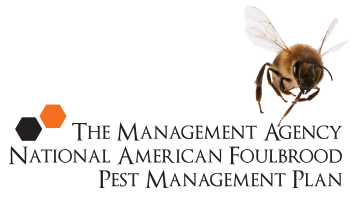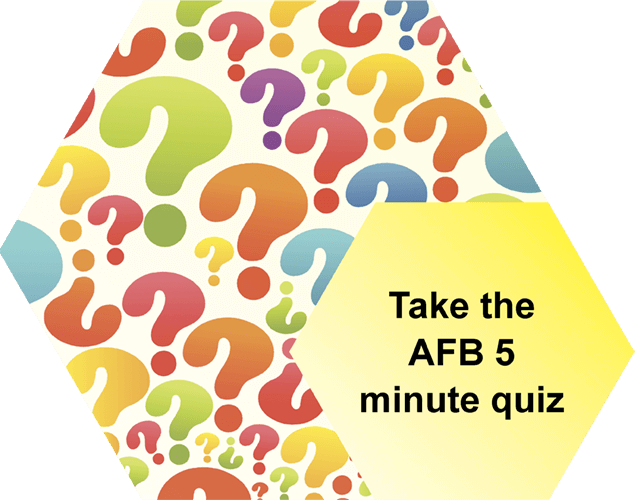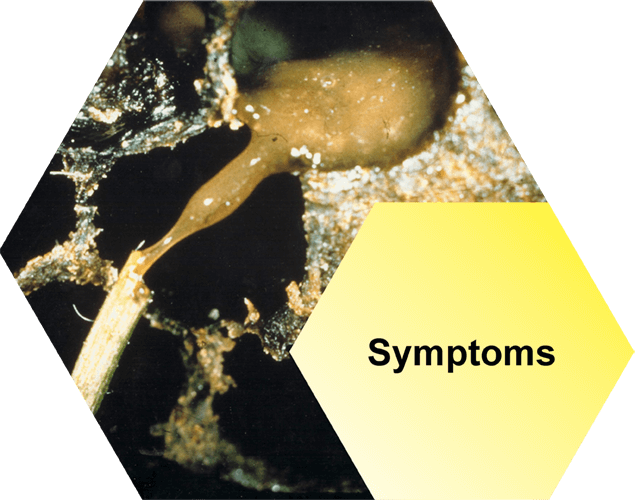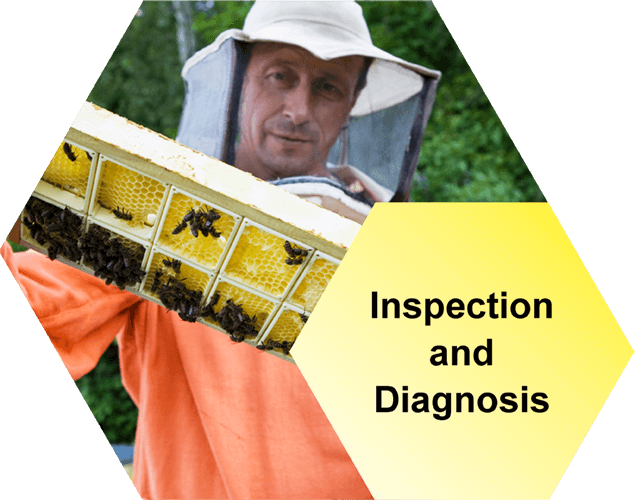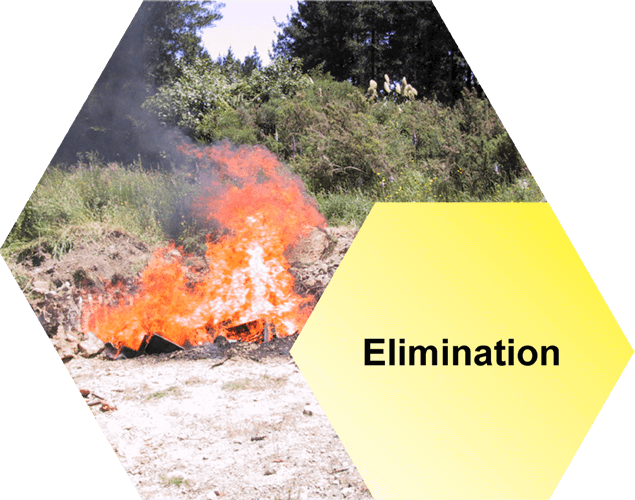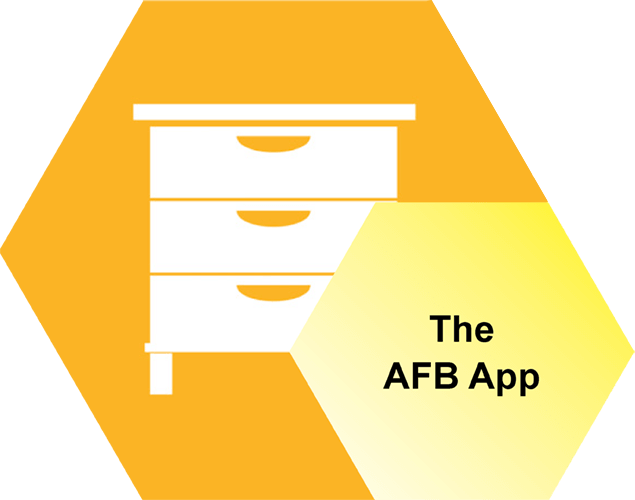American Foulbrood 2024/25 Levy Consultation
Supporting beekeepers in their fight against AFB
Seeking your input on the AFB levy for 2024/25
The Management Agency is currently undertaking consultation with New Zealand beekeepers on a proposal for the American Foulbrood Beekeeper Levy for 2024/25 to remain the same at $40 per beekeeper with an increase of 25 cents from $1.70 per colony to $1.95 per colony.
Why setting the AFB Levy Rate matters:
American Foulbrood (AFB) is the most serious disease affecting honeybees in Aotearoa. The disease has been subject to legislative control in New Zealand since 1906 and a national pest management plan (AFB PMP) since 1998. In the absence of effective disease controls, AFB has caused a significant decline in honeybee populations, honeybee-related industries, and agricultural production.
Due to the serious impact of AFB, all New Zealand beekeepers have legal obligations to eliminate AFB from their beehives. Implementation of the AFB PMP is funded by the American Foulbrood beekeeper and colony levies and has successfully prevented the reported incidence levels of AFB from increasing to the devastatingly high levels of the late 1980s – early 1990s.
About the Levy Proposal for 2024/25:
In 2020, the American Foulbrood Beekeeper Levy was set at $40 ($46 including GST) per beekeeper and $1.70 ($1.96 including GST) per bee colony.
Since then, The Management Agency has been hard at work:
-
One Operation Manager each in the North Island and South Island to ensure The Management Agency has the capacity to manage the inspection of apiaries and investigate and respond to beekeeper notifications of non-compliance and AFB.
-
HiveHub was launched. A modern, purpose-built system that is user-friendly and makes compliance and reporting quick and easy for beekeepers.
-
The recruitment, training, and deployment of a network of qualified AP2s across the country has boosted our rates of inspection and enforcement.
-
Around 60 classroom AFB recognition and refresher courses are run per year. Both the full course and refresher course have become more accessible with a newly developed online platform and the up-skilling of our trainers.
-
Two Apiary Coordinators to better support beekeepers during the peak months associated with ADRs and COIs.
-
500 honey samples are tested for AFB each year. This enables us to allocate AP2 resources to high-risk areas.
Implementation of Proposed Changes:
Our consultation on the National American Foulbrood Pest Management Plan (AFB PMP) led to changes to the AFB PMP. The implementation of the proposed changes to the AFB PMP requires The Management Agency to develop new capabilities in the following areas:
-
New AFB elimination courses for commercial beekeepers focused on integrating AFB elimination procedures with routine husbandry practices to ensure that all beekeeping staff are aware of and implementing these practices as agreed in the Disease Elimination Conformity Agreements (DECA).
-
Active reviews and monitoring the DECA to ensure that The Management Agency is satisfied that beekeepers are implementing the practices and procedures specified in their DECA’s and understand their responsibility for AFB management within the document.
-
Communications and engagement focused on the education of all beekeepers and promoting the benefits of implementing effective AFB elimination practices.
-
Monitoring compliance with plan rules through targeted apiary inspections and improvements to beehive traceability through the requirement of beekeeper registrations prior to hive transfers and new apiary registration.
-
Enforcement of plan rules to include the use of s114 General Powers and changes to existing systems (ie. HiveHub) to support the implementation of infringement fines.
Financial considerations & the commitment to AFB elimination
The proposed levy takes into consideration beekeeping industry challenges and the resulting financial hardship experienced by many beekeepers. While being conscious of the use of levies during a challenging economic climate, the need for The Management Agency to identify and resolve AFB non-compliance before infection can financially impact neighbouring beekeepers is vital.
Despite the increased colony levy and the proposed reduction of expenditure by $121,000, The Management Agency is forecasting a revenue loss of $220,000 for 2024/25. This is based on the forecast decline in the number of registered beekeepers and colonies. We are committed to continually explore opportunities to reduce the budget in areas of lower demand, without compromising our ability to support beekeepers in their fight against AFB.
Have your say on the Levy Consultation
The Management Agency is seeking all beekeepers’ views on the proposed rate of levy for 2024/25.
Consultation on the 2024/25 levy is open until 5pm Friday 20 October 2023. Beekeepers will receive the levy proposal via email, or post if they do not have an email address, from 6 October and can share their views by:
- completing the online submission form, or
- posting a submission form to The Management Agency, PO Box 88 Rolleston, 7643
For more information, email us at [email protected].
Once consultation has closed, The Management Agency will consider all feedback and notify beekeepers of the outcome in December 2023.
Frequently Asked Questions
How much is the levy increasing by?
The base levy for each beekeeper is a fixed amount of $40 and will not change. We propose that the colony levy be increased by only 25 cents. The colony levy is well below the legislated cap of $2.55 per colony.
Why is the budget increasing while hive numbers are dropping?
We acknowledge that the economic conditions beekeepers are in are challenging. Here are some reasons why we’re proposing a colony levy increase.
As colony numbers decrease, The Management Agency has been encountering a large proportion of neglected colonies. Many of these have not been managed properly by their beekeepers due to several factors (e.g. economic strain, less staff for disease monitoring and prevention) and they pose a high risk of AFB infection and spread to neighbouring colonies. The sale of old and AFB-infected gear to other beekeepers can also contribute to the spread of AFB. Our AP2 (Authorised Persons) in the field are deployed to inspect such sites to ensure that we are reducing the risk of AFB spread.
Some apiaries are being abandoned as a result of economic strain on beekeepers. Abandoned hives that are not deregistered with The Management Agency pose a higher risk of AFB infection and spread to neighbouring colonies. When responding to notifications of AFB, we are finding that abandoned hives are a source of AFB. We’re here to help. If you are leaving beekeeping, we can provide advice on how to deregister your operation and ensure that your hives and gear are free of AFB. Call us on 0800 AFB PMP (0800 232 767) or email [email protected]
Why is the colony levy the same for hobby and commercial beekeepers?
The colony levy is applied per colony. You only pay for the number of colonies you own. The Management Agency proposes that the colony levy be increased by 25 cents per colony for the 2024/25 year.
Why can’t I manage AFB myself?
One important reason for a collective approach is that under a ‘no control’ or a ‘no NPMP’ approach, the beekeeping industry is forecasted to lose $70 million of income due to AFB over a ten-year period. Beekeeper non-compliance with the NPMP poses the highest risk of AFB spreading. During the recent NPMP consultation, most beekeeper submissions were in favour of the NPMP remaining in place and that The Management Agency continue to support beekeepers in their fight against AFB. Please refer to page 16 of the NPMP Proposal for the ‘no control’ approach forecasting
How many offices does The Management Agency have?
The Management Agency has an office in Rolleston. The Management Agency formerly shared an office with Apiculture NZ in Wellington CBD, however, this has now been closed to keep costs down.
Take the AFB 5 minute quiz
How well do you know what you need to know about AFB and beekeeping? Take our short quiz and find out.
Videos
Our videos cover everything from your legal obligations to how to recognise AFB, collecting cell and bee samples and more.
Symptoms
There’s a lot of good information here, telling you everything you need to know about recognising AFB: the visual symptoms, smell of AFB and more.
Inspection and Diagnosis
Successfully eliminate AFB by telling the difference between symptoms of AFB and other brood diseases in the hive. We tell you the best methods for inspecting your hives.
The Law
New Zealand beekeepers have a number of legal obligations that must be met regarding AFB disease. Read the shortened list in summary, here.
Elimination
Most hives become infected because bees, honey or equipment have been put into a hive from another hive that is infected with AFB. Lower your chances of an AFB infection by reading this section.
AFB Recognition Course Info
Find out when the next AFB Recognition and Competency Courses, or Refresher Courses are available. These are held throughout the year in various New Zealand locations across the South Island and North Island.
The AFB App
Follow the link below to open the App. Once open to save to your device you need to bookmark the URL on your phone so you can find it easily again. Please click here to open.
